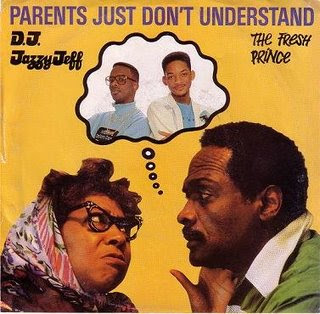OK...so let's say you're in my position. You just discovered that you're moving to Ft. Myers, Florida. You'll be in a small, coastal city near the Gulf of Mexico...the smallest city you've ever lived in. None of the people you know have any clue about what to expect or any advance guidance on what the place is like. All you've been able to glean is that you'll be close to Tampa and Miami.
From experience (I've moved to four different states in the past 8 years) I know that the first impression you get on a place really sticks with you. Those first few nights you have and the first random experiences you have make a really deep impression. Since this is now day 4 I'd like to share some of that experience...and some of those impressions.
The place I'm working for has corporate housing right near downtown...and that was what led me to my first quick lesson:
LESSON ONE ON FT. MYERS: THERE IS NOTHING DOWNTOWN.
Now, don't get me wrong, I've lived in places where there's not much to do downtown. For example, downtown Phoenix is nearly vacant once the big buildings shut their doors at the end of the business day. Ft. Myers is something entirely different. I've been through downtown Ft. Myers at all times of day and night, and I run into the same weird experience: empty streets absolutely devoid of cars, buildings with 'for sale' signs on the store fronts...and, the weirdest part: NO PEOPLE.
I've come to learn that there are, in fact, a couple little enclaves of activity in downtown Ft. Myers. I just went to 'Spirits of Bacchus' tonight, a cool little bar/gastropub with an absurdly delicious gourmet ham and cheese, a nice - though small - crowd, and a great bartender. That said - it's mostly a dead zone. It's as though you were driving through a movie set of empty storefronts...the nicely re-done brick streets have no cars parked on them and no people walking anywhere at all.
It's just something typical to the area: 'everyone knows there's noone downtown.'
The line you hear people here say is: they're really putting in a lot of work to build it up. Which may be true, but currently it looks as though there is a noxious cloud of poison gas in the air...and everyone else knows it but you.
Its important to point out that I got really lucky: my second afternoon here I got to go to a barbecue with an old family friend: Uncle Jimmy. Uncle Jimmy is Jim Thomas, a good friend of my brother's and a mainstay of his life when I was tiny. I got to know him pretty well (as well as any 8 year-old can know someone.) Jim moved to Ft. Myers about 10 years ago now, and he invited me to hang out with his family on Memorial day. It was especially nice in that it offered that little bit of familiarity everyone craves when faced with an entirely novel experience.
I asked about the area and Jim told me he'd get back to me with a few cool places to go check out in the city. This was when I learned my second big lesson.
I'd planned on living at the beach. I mean...obviously, we're so close to the beach, you'd be a fool to not live there. I found, though, that people would be nearly befuddled when I mentioned it. "Ohhhh," they'd say, "You don't want to live at the beach."
To any normal person outside of here, the statement sounds plain ridiculous! Why would you move all this way, be THIS close to the beach, and not want to live there. The answer has a few layers...but the truth is this:
LESSON TWO ON FT. MYERS: NOBODY LIVES AT THE BEACH.
The polite line is that, during tourist season the traffic is horrible (sometimes upwards of two hours on what is normally a 20 minute commute) but that's not the whole story. I got to spend a couple of days hanging out with people I met at the beach and found that the majority of them were...how do I put this:
FORMER 70'S FLOWER CHILDREN BOMBED OUT ON QUAALUDES.
I met only two people in that whole time who even approached my age, a 29 year-old girl who had just moved back, and just
looked like she'd had a hard time of things....and a pasty mid-twenties girl who was so drunk she didn't even talk to me, she just tried to lure me with a drunken come-on look and a clumsy grab at my arm.
I refused those advances.
It's important to note that not EVERYONE on Ft. Myers beach is this way...I work with someone who lives there and he's a very smart, aware, and cool guy. However, that does not describe the lion's share of people I met.
Then there are the accomodations. They are normally descibed as "beach cottages" but that just means 'torn up one or two-story shacks that share coin-op washers.' While I understand that people will definitely put up with the shabby quality of living if it means they can live at the beach...I also realized that quality of life also means the type of people you're surrounded with.
In this case it means dealing with a place on the steep decline: one person told me that they could name 15 different bars that had closed in the past year...and the ones remaining were hardly standing.
The sparse nightlife, shabby living, and unfamiliar crowd (again, mostly 40's or older and dissociated from reality) meant that living at the beach wasn't really for me.
So, I wondered - where ARE the younger, professional people like me? I know there aren't a bunch of them, but there have to be a few. That's where Uncle Jimmy came out HUGE. A list of three places showed up as a text message the day after the barbecue, and I went to one of them. It's called 'Reserve' and I found a mostly empty place (it was Tuesday at 8:30) with a cute girl at one end of the bar, a cool bartender named Johnny, and a band setting up on the nearby stage.
I started chatting with the bartender, then the girl, then some other people who began to trickle in. I found out that lots of people live in central Ft. Myers. The nice places to go (the cool bars, the well-known sushi place, the creative restaurants) seem to be located there. Some people go to 'The Bell Tower' (though, I must admit I haven't been there yet) or Gulf Coast Town Center (another place I haven't been, but have heard some things about) but lots of people go out in central Ft. Myers. There's even a bar known as 'the buddha' for the gigantic buddha statue out front. It's a biker bar during most hours, but it's where most people end up after a night of going out.
I was told: "If you're gonna live anywhere, you should move to 'College Pointe'" It's a nice apartment complex in central Ft. Myers near the nice restaurants, the local school (Florida Gulf Coast University), some cool bars...and that buddha is a short walk away.
I met a girl that night who lives in that complex...and in addition to giving me a rave review of the place, she agreed to split the referral fee with me if I mentioned her.
The complex I'm temprarily staying in - the corporate housing - is in an 18 story tall building that is about 20% occupied. The parking lot is just as empty most times as the downtown streets.
When I went to College Pointe, the leasing office told me that they only had one single bedroom available. Otherwise, they're totally full. No twilight zone here.
I signed my lease today.
 and universities in the country, auditing the most popular, talked-about classes, reviewing professors, and then making those lectures available on CD or DVD.
and universities in the country, auditing the most popular, talked-about classes, reviewing professors, and then making those lectures available on CD or DVD. rite, without a doubt, has to be Understanding Linguistics: The Science of Language by John McWhorter! Every couple of days I'd come away from one of his lecture with some new fact about how linguistics work, or why it's easier for children to learn language than adults, or whether there's languages that use sounds we don't make in ours (btw, yes...check out Kabardian...they have 48 consonants and only two vowels, and it's one of the most complex things ever!) This guy somehow found a way to make an imposing and obscure field seem so clear and logical, and especially entertaining. He's another one of those scary smart people in the world that have a gift for being able to share their knowledge in a way that not only makes you smarter, but also makes you feel smart during the process. All 36 lessons just flew by (yes...18 hours).
rite, without a doubt, has to be Understanding Linguistics: The Science of Language by John McWhorter! Every couple of days I'd come away from one of his lecture with some new fact about how linguistics work, or why it's easier for children to learn language than adults, or whether there's languages that use sounds we don't make in ours (btw, yes...check out Kabardian...they have 48 consonants and only two vowels, and it's one of the most complex things ever!) This guy somehow found a way to make an imposing and obscure field seem so clear and logical, and especially entertaining. He's another one of those scary smart people in the world that have a gift for being able to share their knowledge in a way that not only makes you smarter, but also makes you feel smart during the process. All 36 lessons just flew by (yes...18 hours).


























